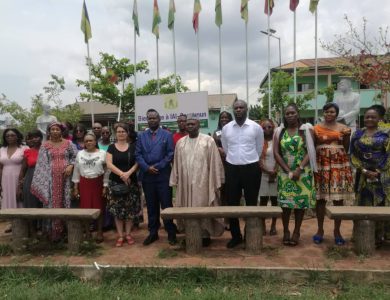Health experts in Cameroon have acquired lessons on Malaria elimination from the Mekong Sub-region in a three-day workshop which recently held in Yaounde.
Dr. Louis Richard Njock, Secretary General of the Ministry of Public Health opened the working session, on behalf of the Minister of Public Health, Dr. Manaouda Malachie.
“I would like to appreciate the presence of participants from different sectors, technical and financial partners, civil society organizations, the national coordination body, and members of Parliament. This testifies not only to the importance of the issue that brings us together, but also to the commitment of all actors in the search for the most innovative solutions to meet the challenges we face in the fight against malaria,” Dr. Njock said.
The learning exercise on malaria elimination in the Mekong Sub-Region was initiated by Impact Santé Afrique (ISA) with financial support from Expertise France and technical assistance from the Health Management Support Team (HMST).
The Great Mekong Malaria Elimination Success
The Greater Mekong is a sub-region in South East Asia that consists of five countries. It successfully reduced malaria cases by 77% and deaths by 97% between 2012-2022.
Twenty informants including representatives of the Regional Steering Committee, a National Malaria Program representative, WHO, the Principal Recipient, the Asia Pacific Leaders’ Malaria Alliance and the civil Society representatives and advocates from the five Great Mekong Countries took part in the Asian malaria elimination workshop.
What Cameroon will need ?
Health experts in Cameroon are stepping up efforts to eliminate malaria, amidst challenges that still stand in the way. The effective implementation of prevention mechanisms, especially among pregnant women, children below five, and the involvement of Community Health Workers in the fight against Malaria are some hurdles identified by the experts.
“ Everything we are doing boils down to eliminating malaria. It is time we learn from those who have succeeded. We need to look at their internal mechanisms and how they practically worked to make that happen. It’s a learning experience that will help us incorporate best practices to achieve our required results,” Joel Ateba, Permanent Secretary of the Malaria Control Programme said.
Stakeholders are also looking at ways of overcoming obstacles which have stalled malaria elimination efforts in Cameroon.
“We have many challenges, especially funding. Only 50% of funding was mobilized for the last National Strategic Plan for the fight against Malaria. We are hoping on the Ministry of Public Health, parliamentarians and other civil society organizations to mobilize resources for our new National Strategic Plan is better funded,” Joel Ateba, the Permanent Secretary said.
The timid involvement of other stakeholders including ministries, civil society, community leaders was addressed during the workshop to ensure that the drive to eliminate malaria is achieved.
“Cameron will have to be open to new ideas, be open to doing things differently, use data to really inform strategies and making sure that strategies on paper can really happen in practice.That involves getting the civil society, communities, and the private sector committed to this course. This is a fight not just for the government, because everybody in Cameroon has to be involved in the struggle to eliminate Malaria,” Lorina McAdam, Consultant for the Health Management Support Team said.
Enroute to malaria elimination
Health experts in Cameroon are optimistic about eliminating Malaria and subsequently becoming a model for other countries in the years to come. They are in search of innovative solutions that will speed up the fight against the disease.
Despite relentless efforts taken by the government to eradicate the disease, Cameron is among the 11 countries most affected by Malaria. Over 2.9 million cases were reported in the country in 2023 with pregnant women and children below five being the most affected. Statistics from the Ministry of Public Health also show that children represent almost 70% of the deaths recorded at in health facilities last year.
Aside Cameroon, Malaria remains a real public health problem in Africa. According to the World Health Organization world report on malaria in 2023, approximately 95% of morbidity and mortality rates from malaria continue to increase in Africa”.
These cases are linked to problems including poor knowledge of the disease and prevention measures, poor access to malaria diagnosis and treatment, and difficulties in accessing inputs for prevention which experts in Cameroon are working on addressing as they seek malaria elimination.
Kathy Neba Sina









